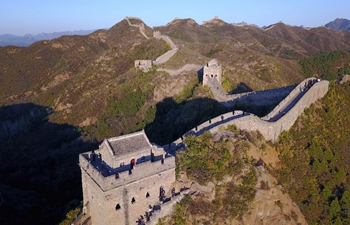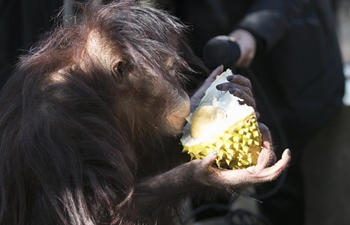LONDON, Jan. 25 (Xinhua) -- The remains of the famous British explorer who was credited with giving Australia its name have been found after 200 years in an old London burial ground, it was announced Friday.
Archaeologists working on Britain's biggest ever rail project, the high-speed HS2 rail, discovered the remains of Captain Matthew Flinders, the Royal Navy explorer who led the first circumnavigation of Australia.
Flinders was buried at St. James' burial ground in London's Euston area on July 23, 1814.
Archaeologists identified his remains by a lead plate placed on top of his coffin found among 40,000 other human remains in the burial ground.
Captain Flinders was commander of H.M.S. Investigator, in which he navigated around the entire coast of Australia.
This made him the first known person to sail around the country in its entirety, confirming it as a continent. He is also credited with giving Australia its name, although not the first to use the term, as his work popularized its use. His surname is associated with many places in Australia, including Flinders Station in Melbourne, Flinders Ranges in South Australia and the town of Flinders in Victoria.
Following the expansion of London Euston railway station westwards into part of the burial ground in 1840s, Flinders' headstone was removed and it was thought that his remains had been lost. For a long time, there was an urban myth that Flinders was buried under the station's platform 15.
The discovery was made as archaeologists excavated the site where the new HS2 station will be built.
At the bicentenary of his death in 2014, a memorial statue of Flinders was unveiled by the Duke of Cambridge at Australia House in London, and later installed at Euston Station. There is also a statue of Trim, the cat who accompanied Flinders on his voyage.
Flinders will be reinterred with the buried population of St. James' Gardens at a location to be announced.
Helen Wass, Head of Heritage at HS2, said: "The discovery of Cpt. Flinders's remains is an incredible opportunity for us to learn more about the life and remarkable achievements of this British navigator, hydrographer and scientist. He put Australia on the map due to his tenacity and expertise as a navigator and explorer."
Wass said Flinders' skeleton will now be studied to see whether life at sea left its mark and what more can be learned about him.













